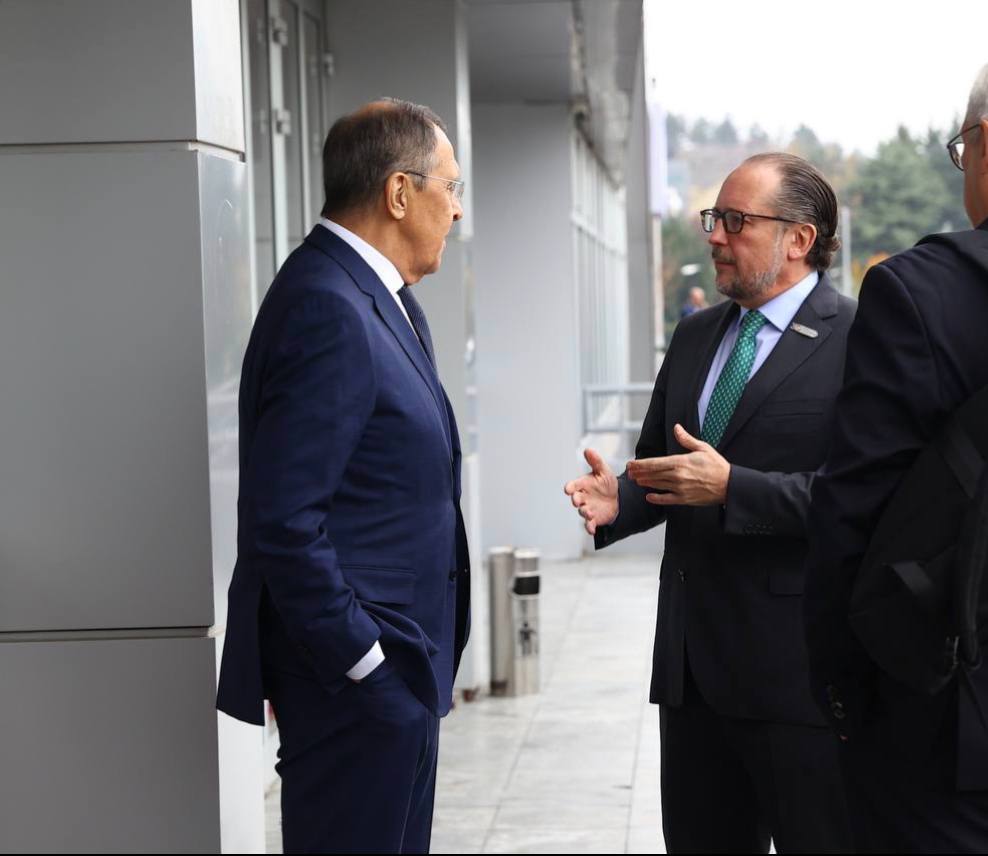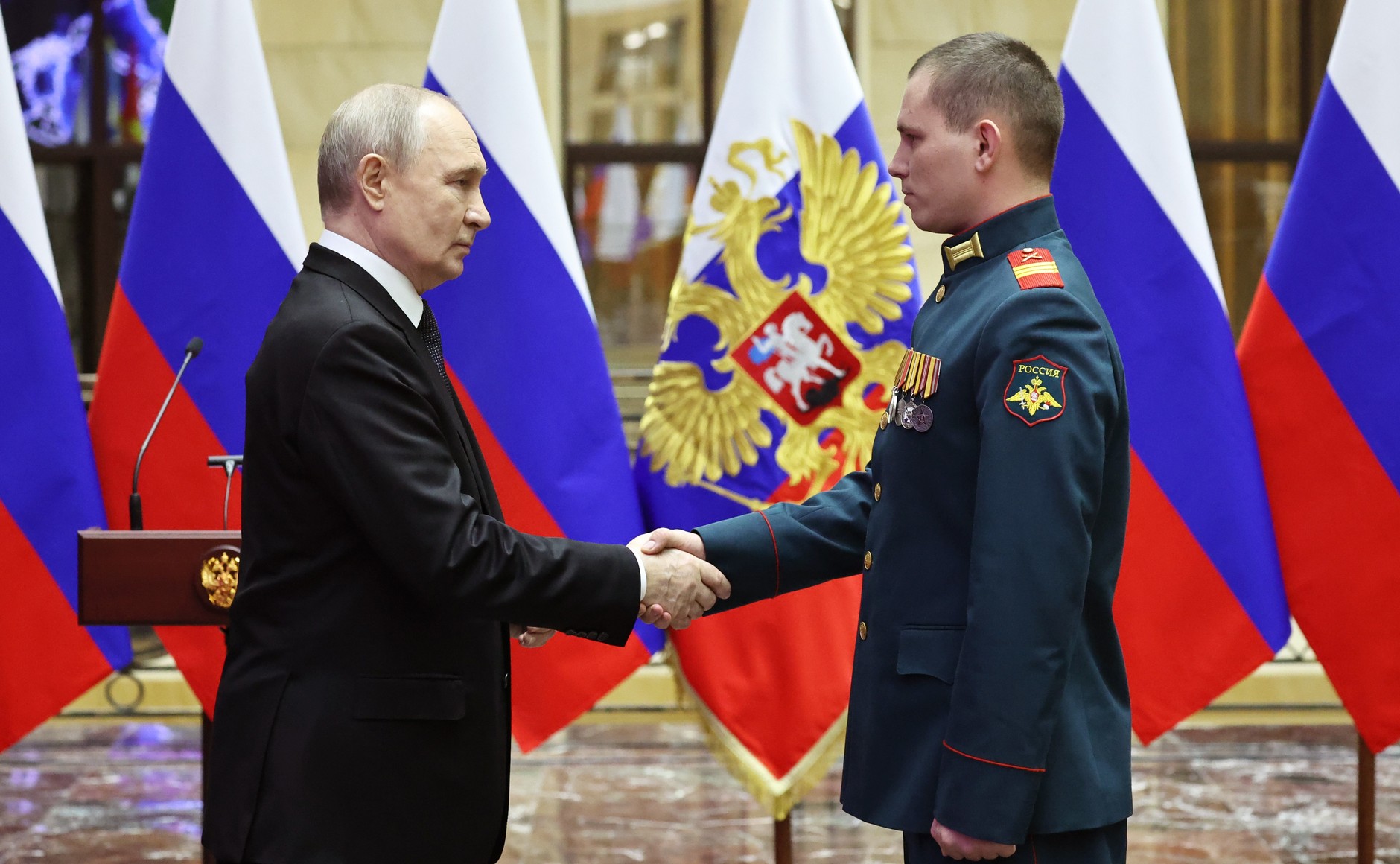
OSCE in Russia’s Tight Grip at Year-End Meeting
OSCE in Russia’s Tight Grip at Year-End Meeting
Russia has practically turned the Organization for Security and Co-operation in Europe (OSCE) into a hostage, ruthlessly instrumentalizing the organization’s consensus rules. The OSCE’s year-end, ministerial-level meeting, held in Skopje on November 29 and 30, highlighted Russia’s stranglehold over the OSCE as never before (see EDM, November 29, 30).
Western diplomacy hoped to conciliate Moscow by dropping Estonia’s candidacy to chair the OSCE in 2024 and inviting Russian Foreign Minister Sergei Lavrov to attend the meeting. Instead of alleviating the stranglehold on finances and personnel, however, the West’s appeasement raised Moscow’s audacity to a new level. It prolonged and even reinforced Russia’s grip on the organization and allowed Lavrov to use the OSCE as a platform for vitriolic Russian propaganda.
The Russian foreign minister’s speeches added ample insult to the paralysis that Moscow inflicts on the OSCE. Lavrov delivered a 15-minute speech to the plenary session (TASS, November 30), exceeding with impunity the three minutes allotted to each country (Eurointegration.ua, November 30). He also held a 75-minute press conference in front of more than 100 international media correspondents (Mid.ru, December 1). Playing on Western fears that Russia would “kill” the OSCE outright, Lavrov warned repeatedly in both speeches: “This organization stands on the edge of a precipice. … I do not care about the results of this meeting [for OSCE finances and top personnel]. … The way this organization looks now, it makes me indifferent to its fate.” Lavrov caricatured US Secretary of State Antony Blinken and EU High Representative for Foreign Affairs Josep Borrell as “mere cowards, who were afraid of a fact-based discussion [with him],” hence “running away” before the plenary session. He depicted the European Union member states as “satellites of the United States, submissively playing that unenviable role” and professed indignation at the “outbreaks of Nazi ideology and practices in the Baltic states and Ukraine.”
After the opaque talks with Lavrov in Skopje, the following results have been announced:
- Russia continues to block approval of the OSCE’s 2024 annual budget for the third consecutive year. Unchanged for the past ten years, the “approved budget” (i.e., Russian-allowed) does not permit adjustments for inflation, necessitates a hiring freeze, and prevents the replacement of staff who quit because of devalued salaries. “The organization is bleeding out,” lamented the OSCE’s chairman-in-office for 2023, North Macedonia’s Foreign Minister Bujar Osmani (Süddeutsche Zeitung, November 30).
- Malta will hold the OSCE’s rotating chair in 2024, instead of Estonia, at Russia’s insistence.
- Lavrov allowed the mandates of the OSCE’s four highest officials to be prolonged by nine months only, instead of the usual three-year rollover: the OSCE’s secretary-general, high commissioner on national minorities, representative on freedom of the media, and director of the Office for Democratic Institutions and Human Rights (see EDM, November 29, 30). The OSCE made this deal with Lavrov under extreme time constraints, as those mandates expired on December 3; they have now been prolonged through September 3, 2024 (OSCE, December 1). Lavrov asserted that those “four characters” must be replaced by “more competent, normal officials who will not behave like puppets in the hands of cheaters,” clearly implying that Moscow is prepared to block any appointments not to its liking (TASS, December 1).
OSCE officials tried to take steps to assuage the Russian delegation’s concerns. North Macedonia’s 2023 chairmanship asked Austrian Foreign Minister Alexander Schallenberg to try to persuade Lavrov to relent on the budget and the top personnel appointments. Schallenberg eagerly obliged based on Austria’s responsibility as host country of the OSCE’s headquarters (Bmeia.at, November 30; Oe.24.at, December 1). Lavrov deigned to meet Schallenberg in a “standing” mode only, outside the building. Moscow released a picture of Lavrov disrespectfully holding his hands in his pockets, impassive to Schallenberg’s pleading (T.me/MariaVladimirovnaZakharova, December 1).
Under the OSCE’s ground rules, countries and groups of countries are free to speak in their own name within the organization. The OSCE itself, however, may only speak or act “in consensus”—a consensus that includes Russia. At the Skopje meeting, a significant majority among the 57 participating countries (including the 27 EU members and nine partner countries) severely condemned Russia’s war against Ukraine. But the OSCE is, by definition, prevented from doing so in the organization’s own name.
Instead, the North Macedonian chairmanship’s concluding announcement contains one brief sentence, in passing, about the ongoing war. It reads, “Discussions also focused on addressing the security challenges caused by the ongoing war in Ukraine” (OSCE, December 1). Russia goes unmentioned because the OSCE institutionally may not criticize Moscow. The ground rules allow the chairman-in-office (who rotates annually) to issue personal statements free from Russia’s veto and carrying no practical consequences. The North Macedonian chairmanship seems to have declined doing so in deference to Russia.
Skopje also hosted the Parallel Civil Society Conference, an annual event hosted by the incumbent OSCE chairmanship. The North Macedonian chairmanship paraphrased the civil society’s declaration: “The declaration emphasized the need to end the war against Ukraine” (OSCE, November 29). Specific negative mentions of Russia remain taboo.
The outgoing chairman, Osmani, declared the meeting a success for the organization and its modus operandi. He said, “Our ability to forge consensus reveals, once more, the importance of building agreement through negotiation and compromise on behalf of our common goals” (OSCE, December 1).
Moscow has allowed the OSCE to limp along for another nine months on Russian conditions. The organization could earn another reprieve by September 2024 if it complies more fully with those conditions. According to Russian Foreign Ministry spokeswoman Maria Zakharova, “This organization has received a bit of a chance, fleeting and perhaps still illusory, to continue its existence” (TASS, November 30).
Many Western governments fear that Russia might conclusively “kill” the OSCE by blocking budgets and appointments indefinitely or simply withdrawing from the organization. This view fails to comprehend that Moscow wants to keep the OSCE alive but compliant, accommodating to Russian interests in Eastern Europe and occupying this niche to keep Western security organizations out of this contested space.
The outcomes of the Skopje meeting bring no real relief. Russia will continue blackmailing the OSCE, demanding further concessions and inducing fear for the organization’s life between now and the September 2024 deadline. This, in turn, will limit the OSCE’s effectiveness for at least the next nine months, if not longer.


